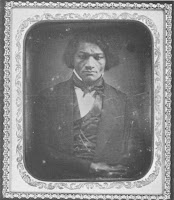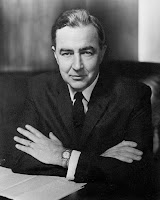“At best, we can say Washington had a poacher's smile.
His dentists took chunks of ivory from hippopotamuses, walruses and elephants,
sculpted them down, and affixed them to dentures using brass screws.”—
American
presidential historian and podcast host Alexis Coe, You Never Forget Your First: A Biography of George Washington (2020)
After 12 years of elementary and high school, most
American kids don’t know much about George Washington. What they think
they know turns out to be a good deal less, or at least more complicated, than
they anticipate—and certainly in the case of three matters.
Yes, Washington owned slaves. But, as noted by Pulitzer Prize-winning biographer James Thomas Flexner, he became, unlike Southern
planters of his age (including Jefferson), more rather than less bothered by
the so-called “peculiar institution” over time.
He not only provided in his will for his slaves’ eventual
manumission, but rented most of Mount Vernon to avoid the debt that
increasingly encumbered fellow plantation aristocrats and limited their ability
to free their own slaves.
And yes, as commander in chief of the Continental
Army, Washington crossed the Delaware River to attack British forces at Trenton.
But, as I learned in a visit to Highland, the Virginia
home of another President in that crossing, James Monroe (then a junior
soldier), Emanuel Gottlieb Leutze’s iconic 1851 painting got almost everything about that event wrong.
(Most obviously, that pose on the edge of the rowboat?
It wasn’t a rowboat but a flat boat, and one strong wave would have sent Washington, leaning forward precariously in front, plunging into the river’s icy
depths, never to emerge alive.)
Which brings us to the third—and dumbest—item: George’s
teeth. It’s always fascinated me how endlessly and boringly fixated
Americans are about his choppers. (When I visited Mount Vernon several years
ago, this was among the most frequently asked questions the staff encountered.)
Gilbert Stuart’s endlessly reproduced image of the first President concentrated attention on this facial defect—even though the
painter tried to downplay George’s sunken cheeks around the teeth by stuffing his
mouth with cotton for what certainly must have been a long, uncomfortable portrait sitting.
As you’ll see in the image accompanying this post,
the teeth were not, for sure, the kind of pearly whites that celebrities flash from
the red carpet.
But it wasn’t until the 19th century—after poor
George had died—that America had its significant “firsts” in dentistry: a book
on the subject published here (1801), a dentist recommending dental floss (1815),
a dental school (1840), and a public demonstration of ether anesthesia (1846). So
what did you expect in his time?
And another thing: while George had only one of his original
teeth by the time of his death, and the dentures he did have caused him
tons of discomfort, they weren’t wooden, okay? They were, as Ms. Coe
notes, primarily ivory.
The rather exotic animal sources that she mentions were
supplemented by gold, lead, and human teeth that Washington paid for—including those of his own
slaves.
I get it that Americans want to know something about
heroes like Washington (and the other great February President honored this day,
Lincoln) that reveal them as human beings rather than statues, with all kinds
of imperfections just like you and me. Nobody could be that good.
But I also wish kids (and yes, their parents) remember
what gets lost in our time of trivia and revisionism—why Washington’s contemporaries
turned to him for leadership, and why we continue to honor him:
*A lifelong commitment to learn and maintain good
manners (the better to restrain a ferocious temper);
*A willingness to serve his country when called to duty;
*Sacrifices he shared with his common soldiers;
*Heeding others when they had better ideas than his
own;
*Spotting and encouraging smart younger men like
Alexander Hamilton;
*Telling the truth and not stealing from the public
purse; and,
*Yielding power willingly, without resort to violence
or corruption—virtually unheard of among world leaders at the time, and, as
even Americans know all too well since January 6, 2021, not to be taken for
granted even here now, as we near 250 years since Washington staked everything
he had—including his life—for a new republican experiment.
(See Adam Littlestone
Luria’s excellent New York University Law Review blog post on the “stable
and enduring politics” that Washington sought to create.)
































